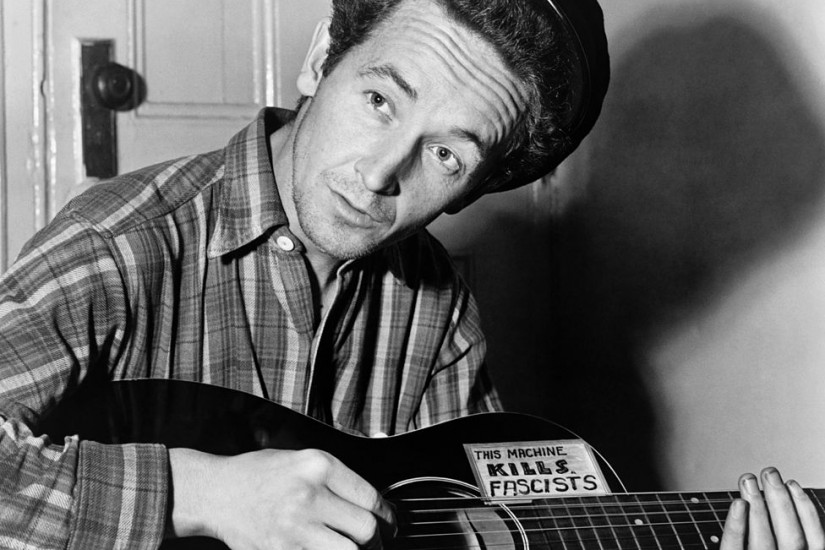Looking for a protest song for modern times? Woody Guthrie’s “This Land Is Your Land” could do the trick (and even if you don’t like it, the mere mention of its title is liable to give you a severe earworm anyway). But the song has lost a bit of its protest oomph, writes Mark Allan Jackson—in part because of a decades-long denial of its later verses.
The song has a long, strange history. Guthrie, a homeless busker and political activist, adapted the melody of a Carter family-penned hymn for the original song, which extols the beauty of America. But though it commemorates America’s “redwood forest” and “Gulf Stream waters,” the song moves further into ambiguity in its later verses. In the original version, it goes on to describe the singer’s refusal to acknowledge someone’s designation of land as private property, then asks if America really is “made for you and me” in light of the existence of hunger and poverty.
Don’t know those lyrics? There’s a reason: Despite entering what Jackson calls “the bloodstream of our nation’s cultural body,” a bastardized, shorter version of the song has left behind only “a praising remnant.”
That remnant’s popularity isn’t due to censorship as much as its convoluted history. Guthrie penned the original song in protest to Irving Berlin’s “God Bless America,” which he deemed jingoistic and offensive to the realities of the Great Depression and the plight of the poor people of the Dust Bowl. As he became increasingly aware of issues of class, he wrote a song that brought together his country’s glory and pain in a microcosm of the American experience. The political mainstream, though, didn’t see things Guthrie’s way—making the song an even more vital expression of an America few were willing to acknowledge.
Ironically, Guthrie himself shortened the song in a 1947 recording session. By the time it was included on an album in 1951, the United States had moved past many of its economic woes and Guthrie himself was aging and ill. Schoolchildren began to use Guthrie’s songs, including the shortened version, and as its popularity grew its protest roots were lost. (The song was even used in car and airline ads.) Only in the late 1960s did the protest verses come back into the public consciousness—and even today, many performances don’t include them.
